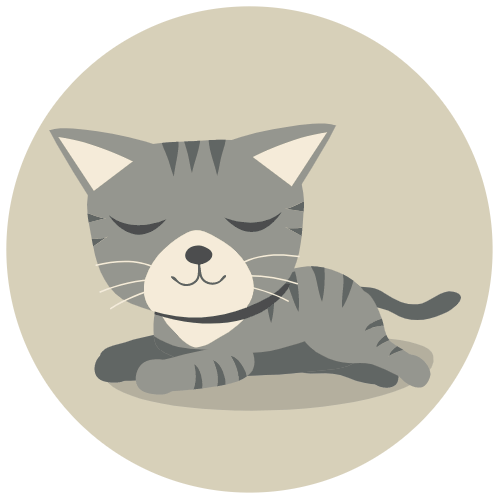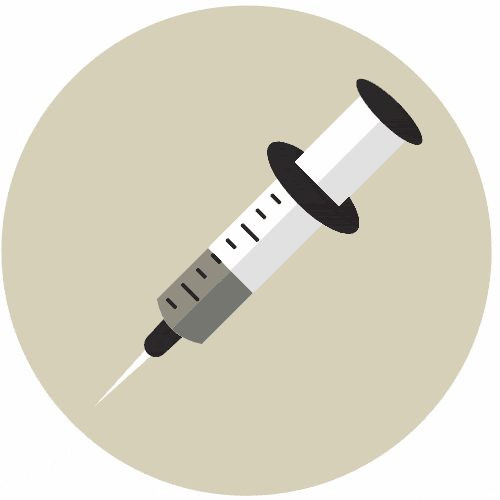Congratulations
on welcoming home a new furry family member!
We know just how exciting, yet overwhelming, this time can be for pet parents. When you first bring your new pet home, we recommend bringing them in to see a veterinarian as soon as possible to establish their care and get started on ensuring their overall health and wellness. For puppies and kittens, we recommend a series of at least three exams, each three to four weeks apart. Your veterinarian at Arrowhead Animal Hospital will customize a protocol to establish proper puppy and kitten care, exams, and immunizations to meet the needs of your new pet’s health and lifestyle. This series of exams will also help socialize your new pet, safely introduce them to a new place in the Westminster, CO area outside of their home, and set them up for a long, healthy life.
Or call us at (303) 469-1616.
First Exams & Vaccines
The exam and vaccine protocol for puppy and kitten care is generally the same for most pets, but may differ slightly depending on your pet’s age, if they have received previous vaccines, and their lifestyle.
EXAM ONE
The first exam is usually done when your pet is around eight weeks of age, but any initial exam under the age of one year is considered “Exam One.”
Kitten Care
- FVRCP (Feline Viral Rhinotracheitis Calicivirus, Panleukopenia) vaccine #1
- Deworming #1
Puppy Care
- DA2PP (Distemper, Adenovirus, Parvovirus, Parainfluenza) vaccine #1
- Deworming #1
EXAM TWO
A recheck exam is scheduled for three to four weeks after exam one, usually around twelve weeks of age.
Kitten Care
- FVRCP vaccine #2
- Deworming #2
Puppy Care
- DA2PP vaccine #2
- Leptospirosis vaccine #1
- Bordetella vaccine #1
- Deworming #2
EXAM THREE
A third exam ensures the overall immunization of your new puppy or kitten and allows your veterinarian to assess their growth. As your pet will now be around sixteen weeks of age, we can begin discussing the next steps in their healthcare, like spay/neuter surgery and parasite prevention.
Kitten Care
- FVRCP vaccine #3
- FeLV (Feline Leukemia Virus) vaccine
- Rabies vaccine
Puppy Care
- DA2PP vaccine #3
- Leptospirosis vaccine #2
- Bordetella vaccine #2
- Rabies vaccine

Spaying and Neutering
Your veterinarian will discuss spaying or neutering your new puppy or kitten when the time is right, depending on their health, breed, and age. We are more than happy to answer any questions or concerns you may have regarding this routine procedure.
HOW DO I SET A POTTY TRAINING SCHEDULE?
- First thing in the morning
- Last thing at night
- After spending time in a crate
- Upon waking up from a nap
- After eating or drinking
- Time between potty brakes
should be no more than 2-4 hours
HOW DO I CRATE TRAIN MY PUPPY?
- Dogs like clean “home” areas and are less likely to have accidents
- Place crate near exterior door for quick relief
- The crate should be big enough for your puppy to stand up, turn around, and lay down
WHEN SHOULD I REINFORCE GOOD BEHAVIOR?
- Don’t scold your puppy for having an accident
- Praise them for doing the right thing
- Reward them with treats, pats, and attention
How do I get my puppy to stop bad behavior?
WHAT CAN MY PUPPY CHEW ON?
- Chewing is a calming mechanism for puppies
- Keep chewing toys around the house; when they start to chew on toys instead of household objects, give them praise
HOW DO I STOP MY PUPPY FROM BARKING?
- Scolding your puppy when they bark can make it worse; instead, ignore barking and praise quiet
- Training your dog to sit helps them fight impulsive barking when they want something
HOW DO I STOP MY PUPPY FROM BEGGING AT THE TABLE?
- Feed them first before you eat
- Create a cozy “go-to” spot near the table where they can be comfortable
- Praise them with treats when they don’t beg
How do I feed my puppy?
HOW OFTEN DO I FEED MY PUPPY?
- 6-12 weeks: 4x a day
- 3-6 months: 3x a day
- 6-12 months: 2x a day
- After a year: 2 half portions a day
- Watch your puppy to gauge if they are eating healthy
WHAT FOOD SHOULD I FEED MY PUPPY?
- Look for AAFCO guidelines
- Look for age and health specific formulas
- Ask your vet for tailored recommendations
WHAT ARE HARMFUL FOODS FOR PUPPIES?
Dairy, chocolate, grapes, and sugary foods, snacks, or desserts
WHAT THINGS SHOULD I BUY FOR A KITTEN?
- Scratch posts (helps preserve furniture!)
- Litter boxes, cat carriers, and food and water bowls
- Stain and odor remover
WHAT SHOULD I MOVE OUT OF THE WAY?
- Toxic plants
- Cleaners and sprays
- Any dog food that might be in the house
HOW CAN MY CAT BE COMFORTABLE?
- Bed and blanket
- Small, cozy space
- Grooming supplies
- Pheromone products
How should I play with my kitten?
HOW DO I PLAY SAFELY WITH MY KITTEN?
- Use balls, jingles, anything on a string, and cotton chew toys
- Avoid “play” with your hands to avoid injury when full grown
WHAT ARE THE BENEFITS OF PLAYING WITH YOUR KITTEN?
- Strengthens your bond with your kitten
- Allows them to release energy that could lead to damage
- Builds trust and comfort for them within a new home
HOW OFTEN SHOULD I PLAY WITH MY KITTEN?
- 20+ minutes of play per day
- Set aside at least two times a day preferably early in the morning and late at night
HOW DO I FEED A KITTEN?
HOW OFTEN SHOULD I FEED MY KITTEN?
- Dry food only: leave available at all times
- Wet food only: feed at least four times a day
- Combo: feed wet food twice a day and leave dry food available
WHAT SHOULD I FEED MY KITTEN?
- Look for AAFCO guidelines
- Look for age and health specific formulas
- Ask your vet for tailored recommendations
WHAT ARE HARMFUL FOODS FOR KITTENS?
- Raw meats, eggs, raw fish
- Grapes, chocolate, and dairy





